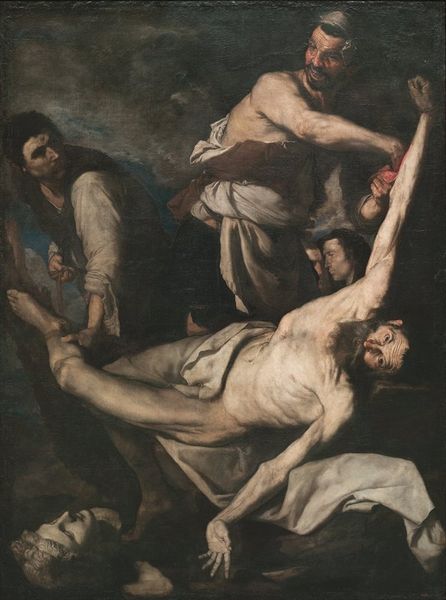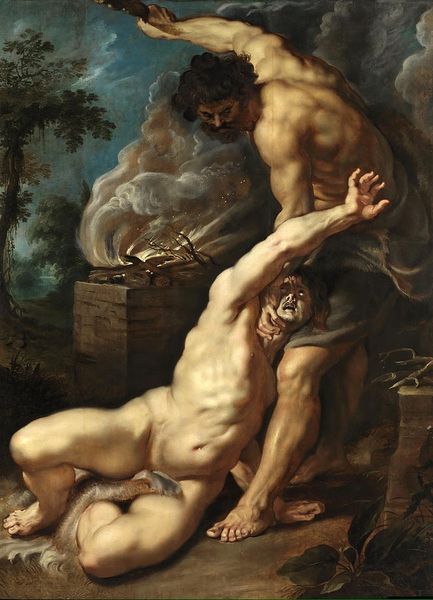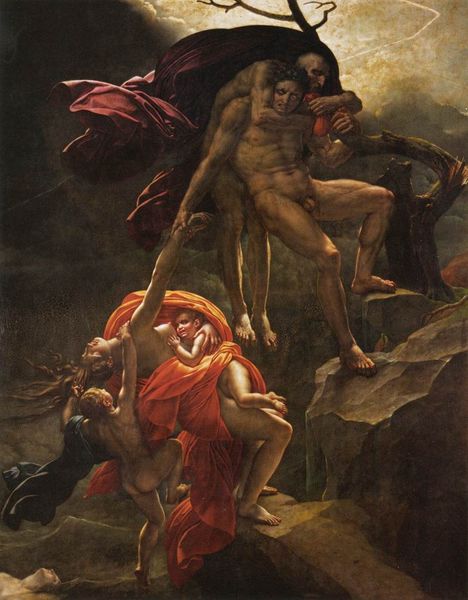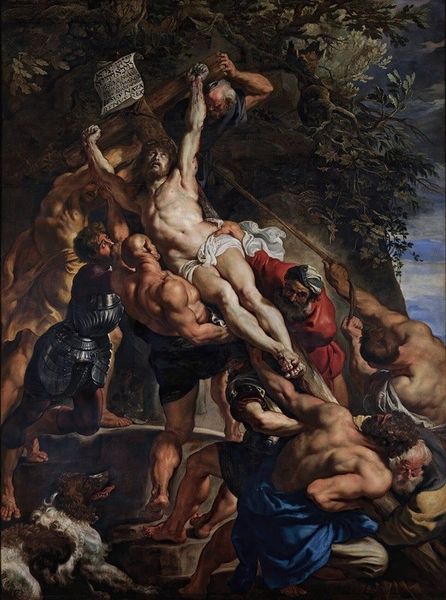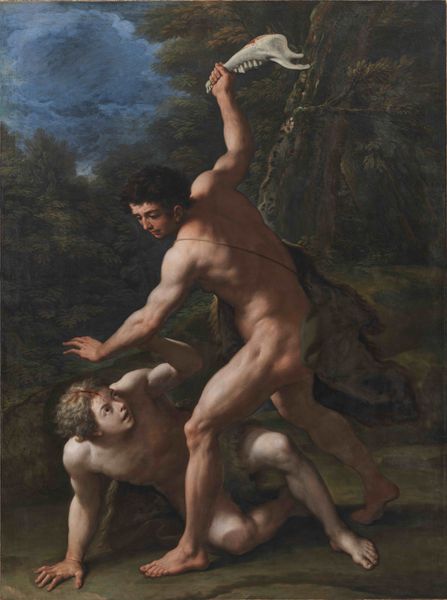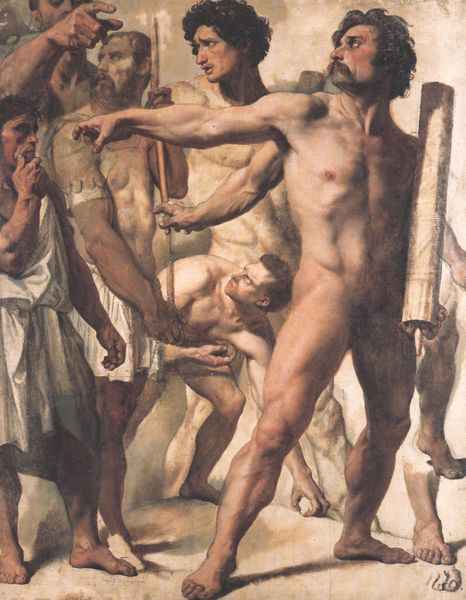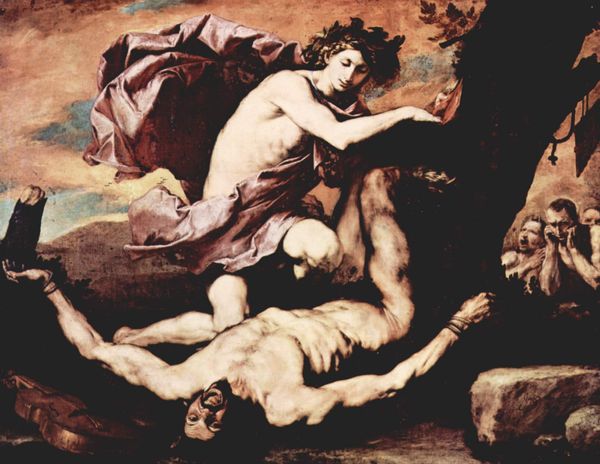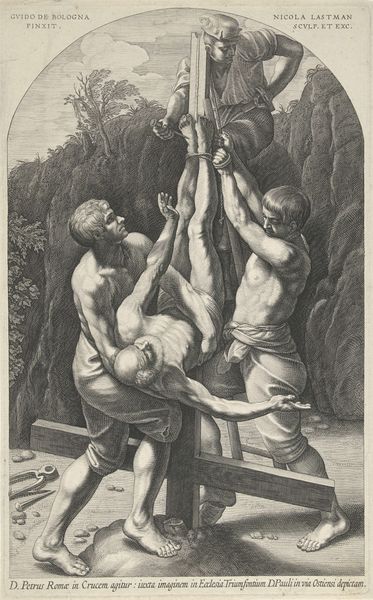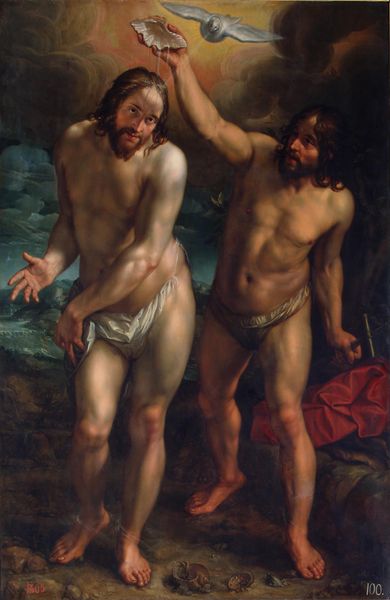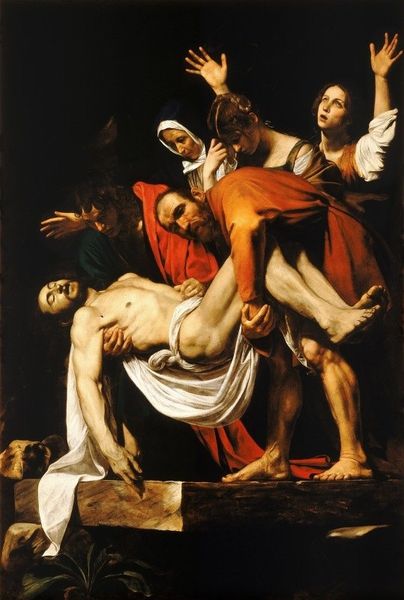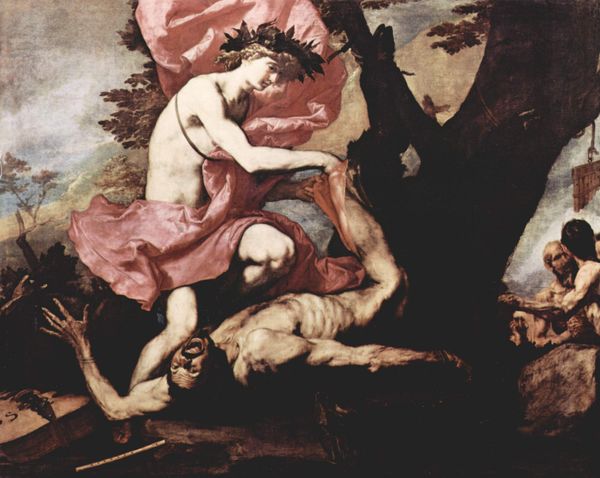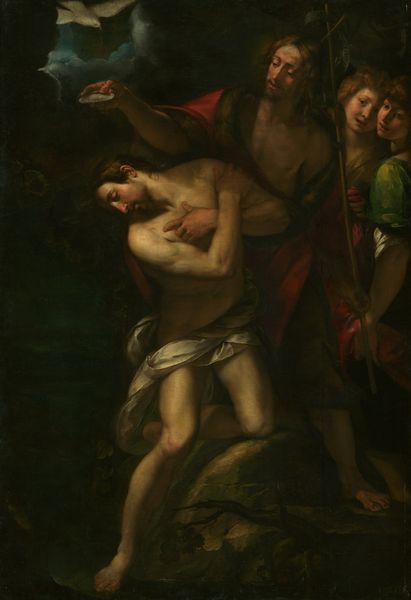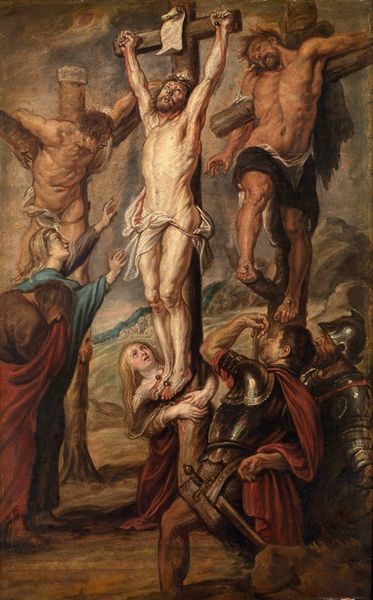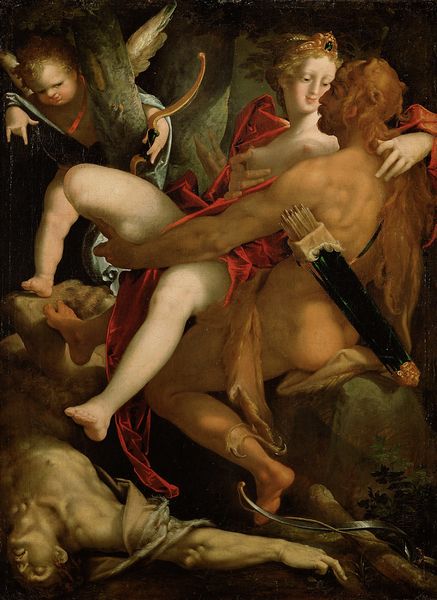
oil-paint
#
baroque
#
oil-paint
#
figuration
#
oil painting
#
christianity
#
human
#
crucifixion
#
history-painting
#
italian-renaissance
#
realism
#
christ
Dimensions: 305 x 175 cm
Copyright: Public domain
Guido Reni painted the "Crucifixion of St. Peter" on canvas in Italy, sometime in the early 17th century. In the painting we see the Apostle Peter crucified upside down. It's a spectacle, but also a theatrical assertion of Catholic power during the Counter-Reformation. The Catholic Church had a vested interest in visually asserting its dominance and the legitimacy of papal authority. The martyrdom of Saint Peter, considered the first Pope, became a potent symbol. Reni’s heroic and idealized figures are a propaganda tool that reinforces the idea of the Church as a divine institution. To understand this work fully, we might turn to Church records or Papal correspondence to understand the nuances of Counter-Reformation ideology. Art history, in this context, is about understanding how images are deployed in service of social and institutional power.
Comments
No comments
Be the first to comment and join the conversation on the ultimate creative platform.
